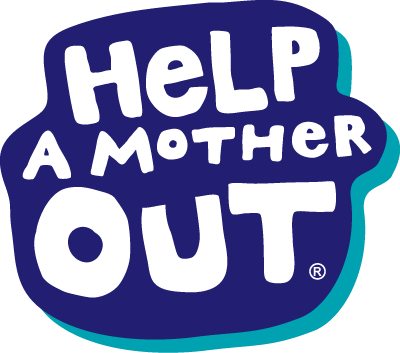Did you know that diapers are not covered by public assistance programs like WIC or food stamps? And did you know that diaper companies do not make big donations to shelters or outreach programs? Until we started Help A Mother Out, we didn’t know it either. It was a revelation to us that something so basic as a diaper could have such a big impact.
If you’re not a parent, you might be surprised to realize that a jumbo pack of Pampers costs from $10 to $15—that’s 20 to 30 cents per diaper, depending on the size of the diaper. And if you can’t shop at discount stores like Target or Costco and instead have to rely on corner stores or drugstores, you’ll often end up paying even more per diaper. For reference, a newborn baby goes through 60 or more diapers a week. When money’s tight, that’s a lot of dough to drop. For families in need, having to choose between buying food or buying diapers is a terrible option—yet an all-too-common one.
Let’s break it down.
1. While safety-net programs such as SNAP (food stamps) and WIC (Women, Infants and Children) cover the cost of infant formula, they do NOT cover diapers.
2. Diaper companies do NOT give diapers away (unless you are Jon and Kate Plus 8 or the California octuplets).
3. Infant formula companies donate formula and the government subsidizes it under SNAP and WIC.
4. Diapers cost exponentially more at an inner-city convenience store than they do at a big box store or online.
5. Most laundromats do NOT allow you to wash cloth diapers. If you are poor, you probably don’t own a washing machine.
6. Most licensed daycare centers (especially free or subsidized) do not accept cloth diapers. Parents must provide disposable diapers.
7. If a family can’t afford diapers (e.g., they need that money for shelter, food, transportation), a baby will spend extended periods of time, sometimes days at a time in the same soiled diaper.
8. Washing and reusing disposable diapers is unhealthy and unsanitary.
9. Unhappy babies are crying babies. Crying babies are more likely to be abused by an already stressed-out caregiver.
10. If you cannot afford diapers, you cannot take your child to free/subsidized childcare. Therefore, you cannot make your commitments such aswork, school, or job training.
11. Start over.
It’s a vicious cycle, but we at HAMO are trying to help break it. By doing something so simple as donating a pack of diapers, you can help make a real difference in someone’s life.
